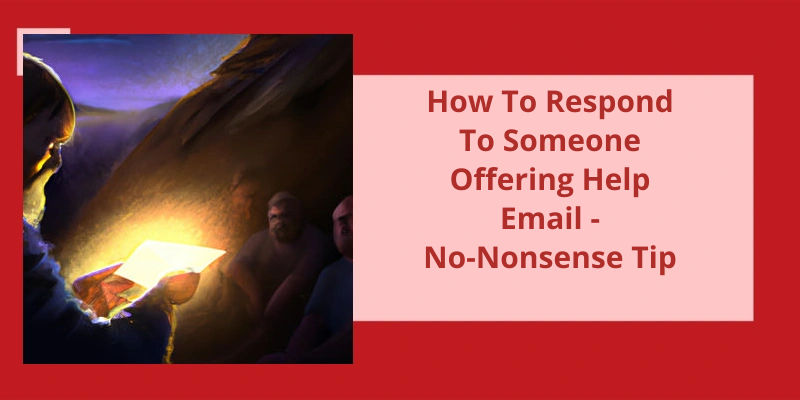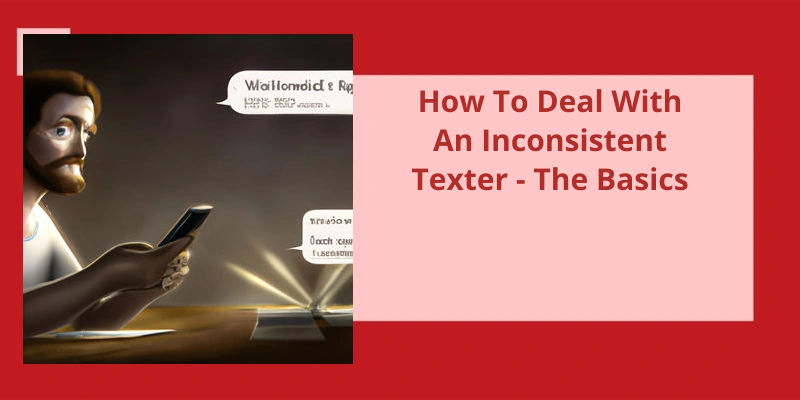When we find ourselves in times of need or facing a challenge, it can be a tremendous relief to receive an email from someone offering their assistance. But how do we respond appropriately to such generosity without sounding too dismissive or overwhelming them with gratitude? Finding the balance between gratitude and maintaining a sense of independence can be a delicate task. In this article, we will explore some no-nonsense tips on how to respond to someone offering help via email. These tips will help you navigate the terrain of expressing appreciation, acknowledging their kindness, while still maintaining your own boundaries and autonomy. By following these practical suggestions, you can respond to such emails with grace and gratitude, ensuring a positive and mutually satisfactory outcome.
Is It Necessary to Respond to a Thank You Email?
However, when it comes to emails from colleagues, clients, or even friends and family, it’s important to respond and show your appreciation. Responding to a thank-you email not only reflects your professionalism but also helps in maintaining a positive and respectful relationship.
Moreover, by responding to a thank-you email, you’re also giving the sender closure. They took the time and effort to express their gratitude, and by not responding, you may leave them wondering if their message was received or appreciated. A simple reply can put their mind at ease and leave a positive impression of you.
In some cases, not responding to a thank-you email can be interpreted as rude or dismissive. It may give the impression that you don’t care or value the senders efforts. This can lead to a strained relationship or even the loss of potential opportunities in the future. Taking a few moments to send a quick acknowledgment can make a big difference in maintaining a positive rapport.
However, it’s important to note that not all thank-you emails require a lengthy response. A simple “Youre welcome” or “It was my pleasure” will suffice in many cases. The key is to show your gratitude and let the sender know that their message was received and appreciated.
It helps to maintain positive connections, shows appreciation for the senders efforts, and can lead to better communication in the future. While not all responses need to be lengthy, a simple acknowledgment can go a long way in strengthening relationships and leaving a positive impression.
When expressing gratitude for support received, it’s important to use a professional tone and address. Start by choosing a professional email address and crafting a subject line that captures the purpose of your message. Personalize your email as much as possible and avoid using slang or jargon. Keep your message concise and specific, highlighting the reasons for your gratitude and mentioning a significant aspect of your conversation. Ensure that your email is clear and free of unnecessary fillers or fluff.
How Do You Write a Professional Thank You Email for Support?
When it comes to writing a professional thank you email for support, there are a few key tips to keep in mind. First and foremost, it’s important to use a professional email address. Avoid using any email addresses that may be unprofessional or overly casual. Stick to a name or combination of initials and last name to maintain a sense of professionalism.
Next, focus on writing a professional subject line for your email. This will help the recipient understand the purpose of your message right away. Keep the subject line concise and to the point, while still conveying your gratitude.
In the body of the email, personalize your message as much as possible. Address the recipient by name and express genuine appreciation for their support. Using formal language throughout the email is crucial, so be sure to avoid slang or jargon. This will help maintain a sense of professionalism and respect.
While it’s important to express your gratitude, don’t go overboard. Keep the email concise and avoid writing a novel. Be specific about why youre thanking the person, whether it’s for their advice, assistance, or resources. Mention something significant from your conversation or interaction to highlight the impact their support had on you.
Lastly, write clearly with no fluff or filler words. Keep your message focused and direct. Avoid using unnecessary adjectives or excessive wordiness. Make sure your email is easy to read and understand, allowing the recipient to quickly grasp the intention of your message.
By following these tips and guidelines, your message will convey your genuine appreciation and maintain a professional tone.
Tips for Writing a Thank You Email to a Professional Colleague or Mentor
- Begin with a warm greeting, using the person’s name.
- Express your gratitude clearly and specifically for the help or support they provided.
- Mention how their assistance has made a positive impact on your work or career.
- Share a brief personal anecdote or a specific example to illustrate your appreciation.
- Wrap up by summarizing your gratitude and expressing your willingness to return the favor.
- End the email with a polite closing and your name.
- Proofread for any grammatical or spelling errors before sending.
- Keep the email concise and focused, with paragraphs or bullet points for clarity.
- Avoid including any unrelated information and stay professional throughout.
- Consider sending a handwritten thank you note in addition to the email for an extra personal touch.
In social situations where someone offers their assistance, it’s customary to express gratitude and appreciation for their willingness to help. Responses such as “Thank you” or “I really appreciate it” convey your gratitude effectively.
How Do You Respond to Someone Offer Help?
When someone offers help, it’s important to respond by expressing your gratitude and appreciation. Simply saying “thank you” is often enough to convey your thanks, but it’s also a good idea to be more specific in your response. For instance, if someone agrees to meet with you, you can say, “Thanks for agreeing to meet with me. I really appreciate your time and input. Im looking forward to our meeting.”
In situations where someone offers to share their knowledge with you, it’s important to acknowledge their generosity. You can respond by saying, “I truly appreciate your willingness to share your knowledge with me. It means a lot to have someone like you who’s willing to guide and support me.”
If you were feeling confused or overwhelmed before the person offered their help, it’s helpful to express that. For example, you could say, “I was completely confused before you offered to help. Your assistance has provided me with much-needed clarity, and I’m grateful for your guidance.”
In more complex situations where expert advice is offered, it’s essential to highlight the value of their expertise. You can respond by saying, “I cant imagine having to navigate this situation without your expert advice. Your insights have been immensely valuable, and I’m grateful for your guidance.”
You can respond by saying, “Im so grateful for your insights. Your perspective has opened my eyes and given me a new understanding of this issue.”
By being specific and acknowledging the value of their support, you can show your appreciation and strengthen the bond between you and the person offering their assistance.
Tips for Accepting Help Graciously
Accepting help graciously is an important skill that can strengthen relationships and make receiving assistance a positive experience for both parties involved. Here are some tips for accepting help graciously:
- Express gratitude: Start by expressing genuine appreciation for the offer of help. Let the person know that their assistance is valued and that you’re thankful for their support.
- Be specific: Clearly communicate what type of help you need or would like to receive. This will make it easier for the person offering help to understand how they can best assist you.
- Accept graciously: Accept the offer of help without hesitation or guilt. Remember that accepting help doesn’t diminish your independence or capabilities. It simply allows you to lighten your load and receive a helping hand.
- Communicate expectations: If there are any specific expectations or limitations when it comes to the help being offered, make sure to communicate them clearly. This will help avoid any misunderstandings or unmet expectations down the line.
- Show appreciation: Once the help has been provided, take the time to express your gratitude again. Let the person know how their assistance has made a positive impact on your life or situation.
By following these tips, you can accept help graciously and foster a sense of appreciation and gratitude in your relationships.
There are countless ways to express gratitude to someone who’s offered their help, whether it’s a friend, family member, or colleague. Simple words of appreciation can go a long way in showing your gratitude and acknowledging their kindness.
How Do You Thank Someone for Offering to Help?
When someone offers their help, it’s important to acknowledge their kindness and express your gratitude in a personal and sincere manner. A simple but heartfelt thank you goes a long way in showing your appreciation. Letting the person know that you genuinely appreciate their offer can be done in several ways. You could say, “I truly appreciate your thoughtfulness and willingness to help. It means a lot to me.”. This conveys your gratitude while also acknowledging their kindness.
Additionally, you may want to emphasize how much their help means to you. Saying something like, “I’m incredibly grateful for your support. It’s comforting to know that I’ve someone like you in my corner” helps to reinforce the significance of their offer.
Remember to keep your response personal and authentic. Instead of simply saying “thank you,” consider adding a personal touch. You could say, “Thank you from the bottom of my heart. Your offer of help has touched me deeply, and I’m so thankful to have you in my life.”. By using heartfelt language and expressing your emotions, you’re conveying your sincere appreciation in a genuine and personal way.
How to Respond When Someone Offers Their Help in a Professional Setting
When someone offers their help in a professional setting, it’s important to respond politely and appreciatively. Start by expressing your gratitude for their willingness to assist you. Then, clearly communicate your specific needs or challenges, providing as much detail as necessary. This will help the person offering help understand exactly how they can support you. Additionally, if you’ve any preferences or suggestions for how they can assist, don’t hesitate to mention them. Finally, conclude your response by expressing your gratitude once again and offering any necessary follow-up information or contact details. By following these simple guidelines, you can effectively respond to someone offering help in a professional manner.
Source: Thanking Someone for Their Time (100 Responses by Scenario)
However, there may be instances where not responding to an email can be excusable or justifiable. It’s crucial to examine the context and understand the potential consequences before making a decision.
Is It Unprofessional to Not Respond to an Email?
However, there may be instances where it isn’t possible to respond to an email immediately. For example, if you’re in a meeting or working on a time-sensitive task, it may be more appropriate to prioritize these activities and respond to the email at a later time.
That being said, it’s generally considered unprofessional to not respond to an email at all, especially if the sender is offering help or assistance. Ignoring such emails can give the impression that you aren’t interested in their support or that you aren’t taking their offer seriously.
In these situations, it’s important to acknowledge the email and express gratitude for their willingness to help. Even if you don’t require their assistance, a simple reply expressing appreciation and politely declining their offer is the courteous thing to do.
Furthermore, not responding to an email can hinder effective communication and collaboration within a team or organization. By ignoring emails, you may be creating bottlenecks and delays in decision-making processes, which can negatively impact productivity and efficiency.
It’s important to prioritize responsiveness and acknowledge emails, especially when someone is offering help or assistance. By doing so, you foster a respectful and collaborative work environment where communication flows smoothly.
Conclusion
In conclusion, when responding to someone offering help in an email, it’s important to maintain a professional and appreciative tone. Acknowledge their kindness and express gratitude while being clear and specific about your needs or preferences. Avoid lengthy explanations or excuses, and instead, focus on concise and direct responses. Consider utilizing a template or structure for your reply to ensure clarity and efficiency. Remember to be gracious and open to assistance while also maintaining boundaries and being mindful of your own needs and priorities. Following these no-nonsense tips will help you navigate these situations with tact and ensure that both parties have a mutually beneficial interaction.






